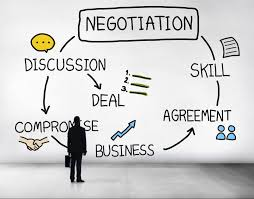You’ve spent years creating your small or medium-sized business (SME) from nothing. You’ve weathered the storms of entrepreneurship, turned obstacles into opportunities, and now your company stands at a crossroads. Perhaps you’re thinking of selling it to a larger firm, merging with a competitor to broaden your market reach, or buying a smaller business to enhance your position. Whatever the situation, the route ahead is fraught with difficult judgments, legal complexities, and financial concerns. This is where an M&A (Mergers and Acquisitions) business comes in, leading you through the twists and turns necessary to complete a successful transaction.
M&A transactions are similar to chess games in that each move must be calculated and each choice considered. For big organizations, these changes may emerge organically, aided by in-house expert teams. However, for SMEs, the stakes are just as high, and the margin for mistake is even narrower. This is why an M&A firm’s involvement in enabling deal completion for SMEs is important. Let’s take a closer look at how these companies transform what might appear to be an overwhelming process into an organized, controllable, and ultimately profitable.
Setting the foundation: Understanding the client’s needs and goals

Before the completion of any transaction, an M&A firm must first have a thorough knowledge on specific needs and objectives of your company. They don’t simply touch the surface; they go deeply into what you hope to accomplish via the M&A process. Do you want to cash in on years of hard work by selling your business? Or is it about growing through a strategic acquisition? Perhaps you are considering a merger to achieve synergies with a competitor. Whatever your goal, the M&A company listens, learns, and then creates a plan that is ideally aligned with your vision.
This initial stage is analogous to establishing the coordinates before going on a journey. It is simple to become lost if you don’t know where you’re going. The M&A company assures that every subsequent step is in accordance with your business objectives, whether it’s optimizing the selling price, identifying the ideal acquisition target, or arranging a merger that benefits all parties involved.
Decoding Value: A Comprehensive Valuation and Financial Analysis

Once your goals are clear, the following stage is to determine the genuine worth of your company. Valuation is an important part of the M&A process, particularly for SMEs where every dollar counts. An M&A company does a thorough financial study, looking into all aspects of your organization, including revenue sources, profit margins, assets, liabilities, market position, and growth prospects. They may also take into account external factors such as industry developments and economic situations when determining a realistic and fair assessment.
Why is this important? Because the appraisal sets the tone for the whole transaction. If your firm is undervalued, you may be missing out on money. On the other hand, an inflated valuation may deter potential purchasers or partners. The M&A firm’s experience ensures that your company is neither undervalued or overvalued, paving the way for successful talks.
Finding and Approaching Potential Buyers or Partners

Finding the proper buyer, partner, or investor is one of the most difficult issues that SMEs confront during the merger and acquisition process. Unlike large firms with broad networks, SMEs may lack the contacts to reach out to a diverse pool of possible transaction partners. This is where an M&A firm’s network is essential.
M&A companies have developed contacts with a diverse spectrum of possible purchasers, including private equity firms, strategic investors, and other businesses seeking acquisition prospects. They don’t simply throw a wide net, but a clever one. Using their industry knowledge and solutions such as Leadzen.ai, they generate hyper-targeted lists of possible customers or partners that are not only interested in your company but also a strategic match.
Approaching potential buyers or partners is a skill unto itself. The M&A firm understands how to present your company, emphasizing its strengths and matching it with the goals of the prospective buyer. This focused strategy boosts the likelihood of recruiting serious and suitable bidders, which is critical to pushing the sale ahead.
The Art of Presentation: Creating Marketing Materials and CIMs

First impressions count, especially in M&A transactions. When potential buyers or partners assess your company, they must be impressed by what they see. An M&A firm can assist you in developing high-quality marketing materials that will best represent your company. This includes a well-written Confidential Information Memorandum (CIM), which gives potential purchasers specific information about your firm.
The CIM is more than simply a sales presentation; it gives a thorough review of your company, including financials, operations, market position, and growth possibilities. Its purpose is to instill confidence in potential buyers, increasing their likelihood of engaging in serious negotiations. The M&A company ensures that the CIM is both persuasive and factual, hitting the ideal mix of transparency and persuasion.
Navigating the Negotiation Table: Facilitating Discussions and Agreement Terms

Negotiation is commonly used to make or break transactions. Negotiating with larger corporations or investors can be scary for small and medium enterprises. This is when an M&A firm’s expertise comes into play. They serve as a liaison between you and the opposing party, ensuring that your interests are represented and safeguarded.
The negotiating process may be complicated, with numerous rounds of conversations on various areas of the agreement—price, payment terms, conditions, warranties, and so on. The M&A company leads you through each phase, helping you comprehend the consequences of various alternatives and advise on the best course of action.Their purpose is to achieve an agreement that benefits both sides, laying the road for a successful conclusion.
Clearing the Path: Thorough Due Diligence
Due diligence is a vital stage in the M&A process in which a possible buyer or partner thoroughly investigates your company to verify all of the information given. This may be a demanding procedure since it entails reviewing every area of your company—financial data, legal contracts, personnel information, operational methods, and so on.
An M&A company assists you in preparing for due diligence by arranging all required papers and presenting them in a clear and accessible format. They also help to address any issues or questions that occur during this process. By successfully managing the due diligence process, the M&A company ensures that it runs smoothly and reduces the possibility of delays or deal breakers.
Creating the Blueprint: Organizing the Deal

After due diligence is completed, the attention switches to the deal structure. This is when the M&A firm’s expertise truly shines. They assist in determining the most appropriate agreement structure based on your aims and the other party’s preferences. Whether it’s an asset acquisition, a stock purchase, or a merger, the deal structure must reflect both your objectives and the transaction’s actual reality.
The M&A company also advises on the financial components of the transaction, such as payment options (e.g., cash, shares, earnouts) and any unexpected events that need to be added. A well-structured agreement decreases the chance of future disagreements and ensures that all parties understand what they’re agreeing to. This transparency is important for achieving a successful contract conclusion.
Legal safeguards: Writing and reviewing legal documents

The legal side of M&A deals may be quite complicated, with several paperwork that must be created, examined, and signed. This comprises the purchase agreement, employment contracts, non-compete agreements, and so on. An M&A company collaborates closely with legal professionals to ensure that all paperwork is correct, complete, and in line with the conditions of the transaction.
The M&A firm’s engagement in the legal process is important to preserving your interests.They ensure that the legal papers accurately represent the agreed-upon conditions and that there are no gaps or ambiguities that might lead to future problems. This rigorous attention to detail helps to ensure that the transaction runs smoothly and successfully.
Crossing the Finish Line: Finalizing the Deal

The conclusion of a deal is the pivotal stage in every M&A process. After months of preparation, discussions, and due diligence, this is where it all comes together. The M&A company handles all of the final processes, ensuring that everything is in order for a smooth closure. This involves preparing legal documentation, arranging for cash transfers, and completing any required regulatory filings.
Closing a contract is frequently the most difficult step of the process since it is when any outstanding concerns must be handled. The M&A firm’s responsibility is to handle these last-minute issues and ensure that the transaction does not fail. By keeping everything on track, the M&A company ensures that the transaction is completed effectively, allowing you to meet your business objectives.
Beyond the Deal: Post-Deal Integration and Continuous Support
Closing the acquisition is not the conclusion of the M&A process; rather, it marks the beginning of a new chapter for your company. Whether you sold your business, bought a new one, or merged with another, there is still work to be done. The M&A company assists you during the post-transaction integration phase, guiding you through the hurdles of integrating businesses, aligning cultures, and realizing the synergies that the deal was designed to generate.
Post-deal support is important to ensure that the acquisition gives the promised advantages. Even the best-structured agreement might fail to realize its full potential if it is not properly integrated. The M&A firm’s continued assistance smoothes the transition and ensures that your business thrives in its new form.
Conclusion
For SMEs, the M&A process may be a scary trip fraught with complications and difficulties. However, with the appropriate M&A company on your side, what may appear to be a daunting process becomes an organized and manageable one. From understanding your company objectives to finalizing the deal and providing post-deal support, an M&A firm is important to the success of your M&A transaction.
M&A firms assist SMEs in navigating the M&A market by using their experience, networks, and resources to safeguard their interests and maximize the deal’s value. Whether you’re wanting to sell, buy, or combine, working with an experienced M&A company may make all the difference in making your business goals a reality.
Frequently asked Questions
- How long does the M&A process take for SMEs?
The timetable for an M&A transaction can vary greatly based on the transaction’s complexity, company preparedness, and the buyer or partner’s individual circumstances. On average, the procedure takes 6 to 12 months, although it might be shorter or longer. An M&A company keeps the process on track and can give a more precise time frame depending on your individual circumstances.
- What is due diligence, and why is it necessary?
Due diligence is a detailed examination undertaken by a prospective buyer or partner to confirm the facts given about your company. It includes reviewing financial data, legal papers, operating procedures, and other materials. This stage is important because it allows the buyer to analyze the risk and value of the transaction. A well-planned due diligence process managed by an M&A company ensures openness and fosters confidence between both parties, which is important for a successful transaction.
- Can an M&A firm assist once the transaction is completed?
Yes, several M&A companies give post-deal integration help. This is especially important if the transaction includes combining activities or transferring ownership. The M&A company may help ensure the integration process runs well, reducing interruptions and assisting the new business structure to reap the benefits of the transaction.
- How does an M&A company assess the value of my business?
An M&A firm does a full assessment by reviewing your company’s financial statements, assets, liabilities, market circumstances, and growth prospects. They may also evaluate industry trends and economic aspects to ensure that the value is reasonable and fair, which is important for creating appropriate expectations during the deal-making process.



